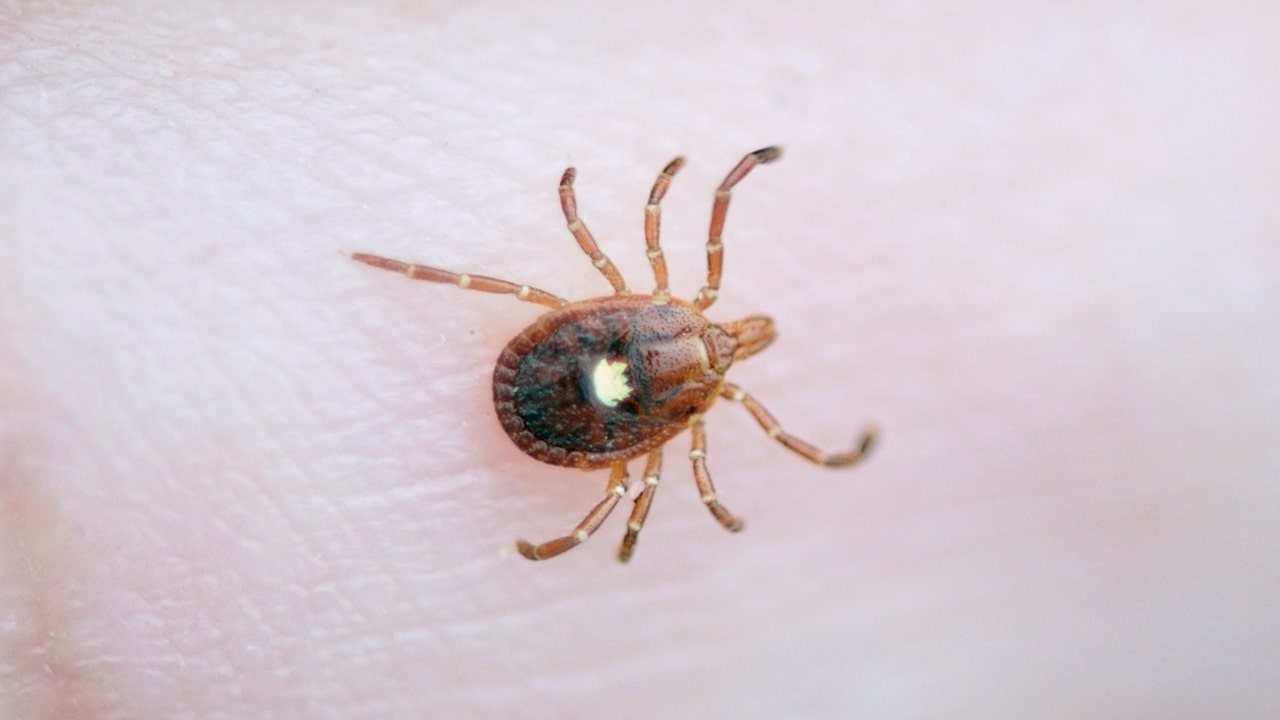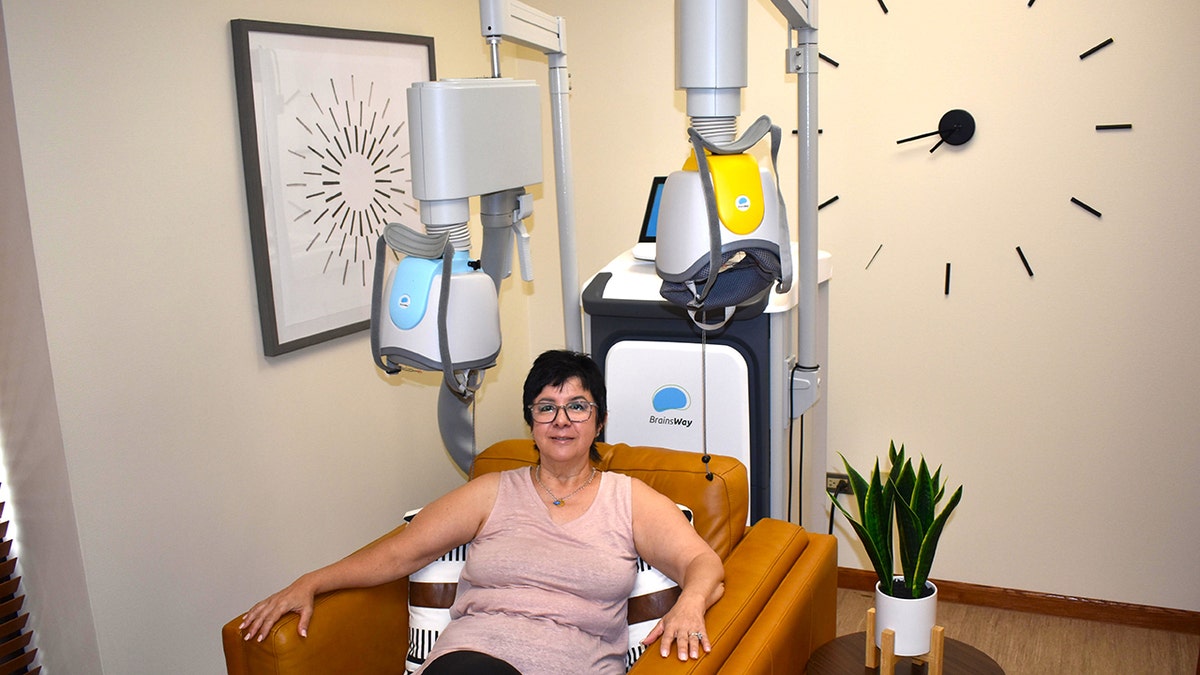Health
Mysterious illness triggered by tick bite could affect thousands, yet many doctors are unaware of it

A little-known, life-threatening food allergy that is triggered by a tick bite could be affecting hundreds of thousands of people in the U.S., the Centers for Disease Control and Prevention (CDC) warned in its Morbidity and Mortality Weekly Report on Thursday.
The condition is called Alpha-Gal Syndrome (AGS) — also known as the “red-meat allergy” or the “tick bite meat allergy.” It begins with a bite from the Lone Star tick, found primarily in Southeastern and Eastern states.
The tick’s saliva contains a sugar molecule called alpha-gal, which is injected into the body with the bite. This triggers allergies to certain types of red meat (primarily pork, beef, rabbit, lamb or venison) or products made from mammals (including cheese, milk, other dairy products and gelatin).
TICK BITES AND LYME DISEASE: WHAT TO DO IF A TICK BITES YOU OR YOUR PET
When people eat any foods containing the allergens, they can experience serious allergy symptoms within a few hours.
The CDC has only been aware of Alpha-Gal Syndrome since 2008, according to Dr. Johanna Salzer, CDC epidemiologist and a senior author of the new report.
“Those with more severe reactions are administered Epi-Pens in case they go into anaphylactic shock,” a CDC researcher said. (iStock)
“We have seen an annual increase in the numbers of suspected Alpha-Gal Syndrome cases between 2010 and 2022,” she told Fox News Digital.
Between 2017 and 2021, out of 300,000 tests done, 30% were positive for AGS, the CDC found in one study.
Officially, the CDC has received reports of over 110,000 suspected cases — but it’s believed that the actual number could be as high as 450,000 people.
This is because many people likely don’t get tested and many physicians haven’t even heard of the condition, Salzer said.
RARE TICK-BORNE BABESIOSIS DISEASE ON THE RISE IN NORTHEASTERN US, SAYS CDC: HERE’S WHY
“Based on our survey of 1,500 physicians and medical professionals, nearly half of them had never even heard of the syndrome,” she said. “Another third of them said they have heard of it, but that they have little confidence in their ability to diagnose [it] or manage a patient [with it].”
Someone ate a steak dinner at night, then woke up at 2 a.m. having an anaphylactic reaction.
She added, “It’s important for them to be aware of this condition and the variety of ways in which people can present, as well as the geographic areas where we’ve identified suspected cases and potential hot spots.”
Alpha-Gal syndrome: ‘Milder to more severe reactions’
In the first documented case of AGS, Salzer said someone ate a steak dinner at night, then woke up at 2 a.m. having an anaphylactic reaction, which led to an emergency room visit.
“We now know that people can range from milder to more severe reactions,” she said. “It’s inconsistent between individuals. Some people only have gastroinestinal symptoms and others have more severe anaphylactic reactions.”

The tick’s saliva contains a sugar molecule called alpha-gal, which is injected into the body with the bite. (iStock)
Some other common symptoms include hives; itchy or scaly skin; swelling of the lips, face, tongue and throat; wheezing or shortness of breath; and stomach pain, diarrhea, upset stomach or vomiting, according to the Mayo Clinic’s website.
Complicating things further, the same person can have different reactions at different times.
“One day, a person could eat a hamburger that causes an anaphylactic reaction, sending them to the ER — but then the next day they might eat meat and hamburgers and not have any symptoms,” Salzer said.
“This makes it difficult for both the patient and a health care provider to understand what is triggering these symptoms.”
“Some people only have gastroinestinal symptoms and others have more severe anaphylactic reactions.”
Dr. Scott Commins, associate professor of medicine and associate chief for allergy and immunology at UNC Medicine in North Carolina, was a co-author of the CDC reports.
He often hears of patients having “middle-of-the-night symptoms” — mainly hives, itching and abdominal pain.
“A red, itchy spot where the tick bite occurred, which can take weeks to heal, is also commonly reported,” he told Fox News Digital.

The Lone Star tick (pictured) is found primarily throughout the Eastern, Southeastern and South-Central states, according to the CDC. (iStock)
“Some patients describe only having gastrointestinal symptoms — severe abdominal cramping, nausea, vomiting and diarrhea — so if this happens repeatedly after eating red meat, that can be a sign of the allergy and may be worth having the blood test performed,” he added.
A diagnosis of AGS requires antibody testing and a clinical exam.
Many patients face a long road to diagnosis — an average of seven years, Salzer said.
“And to get diagnosed, they have to have access to an allergist,” she noted. “For many people, there are barriers to get that level of treatment.”
AS LYME DISEASE TESTS MISS MANY ACUTE INFECTIONS, POTENTIAL AT-HOME TEST OFFERS HOPE FOR EARLIER DIAGNOSIS
When someone is diagnosed with AGS, the person may have it for a lifetime, Salzer said.
“However, for some people, if they remove the foods from their diet that can reactivate Alpha Gal syndrome, over time, their antibody levels may drop,” she noted.
Currently, there is no treatment or cure for AGS — though physicians can help patients manage their symptoms.

“There are a number of things [that] health care providers can provide to alleviate symptoms depending on the patients’ individual reactions.” (iStock)
“There are a number of things [that] health care providers can provide to alleviate symptoms depending on the patients’ individual reactions,” Salzer said.
“Those with more severe reactions are administered Epi-Pens in case they go into anaphylactic shock.”
The CDC has not recorded any known fatalities from Alpha-Gal Syndrome.
What to know about the Lone Star tick
The Lone Star tick is found primarily throughout the Eastern, Southeastern and South-Central states, according to the CDC.
“We’re seeing that the geographic pattern is kind of a contiguous region between the South, the Midwest and the Mid-Atlantic region, which follows very closely to the Lone Star tick’s established populations,” Salzer said.
ARE SUMMER ALLERGIES GETTING IN THE WAY OF YOUR FUN? HERE’S HOW TO GET RID OF THEM
“So, we still believe that it’s the primary tick species in the U.S. that is associated with Alpha-Gal Syndrome, but other kinds of ticks have not been ruled out,” Salzer added.
“The allergy itself does appear to resolve completely for many patients who can successfully avoid additional tick bites.”
There have been some clusters of cases in other regions outside the Lone Star tick’s primary areas, such as Minnesota and Wisconsin.
“That suggests there may be another tick species involved, or that there are perhaps pockets of Lone Star tick populations that have not yet been documented,” Salzer explained.

To protect against tick bites, Salzer recommends applying EPA-approved insect repellent whenever going into an area where tick bites are a possibility. (iStock)
To protect against tick bites, Salzer recommends applying EPA-approved insect repellent — those containing DEET, picaridin, IR3535, Oil of Lemon Eucalyptus (OLE), para-menthane-diol (PMD) or 2-undecanone — whenever going into an area where tick bites are a possibility.
Wearing long-sleeved shirts, long pants and socks can also help to prevent bites, along with avoiding grassy, brushy and wooded areas.
CLICK HERE TO SIGN UP FOR OUR HEALTH NEWSLETTER
“When returning from an area that is known to have ticks, be sure to shower and do a very thorough check,” she added.
There is a seasonal factor to consider, as the cases occur more in warm months when folks are outside and ticks are active, Commins noted.
“The allergy itself does appear to resolve completely for many patients who can successfully avoid additional tick bites,” he said.
“We find that continued, occasional bites can be sufficient to keep the allergy present.”
With its new reports, the CDC aims to educate physicians and patients about an emerging public health problem that can have potentially severe health impacts, said Dr. Ann Carpenter, epidemiologist and lead author of one of the papers released on Thursday.
“It’s critical for clinicians to be aware of AGS so they can properly evaluate, diagnose and manage their patients and also educate them on tick-bite prevention to protect patients from developing this allergic condition,” said Carpenter in the CDC report.

Health
7 important health stories you might have missed this week: Catch up here

Every day of the week, Fox News Digital publishes a range of health pieces to keep you up-to-date on the most important wellness news.
We cover cutting-edge medical research, breakthrough medications, mental health challenges, personal medical dramas and more.
In case you missed them, here are a few of our biggest health stories from this week.
CLICK HERE TO SIGN UP FOR OUR HEALTH NEWSLETTER
You can see a full list of recent health pieces at http://www.foxnews/health.
1. Hunger could be tied to sleep, expert says
If you’re feeling hungrier than usual lately, your sleep routine could be the culprit. A nutritional biologist offers tips for regulating sleep and curbing unhealthy cravings. Click here to get the story.
The food you eat can determine the quality of your sleep, according to experts. Here are the latest findings. (iStock)
2. Health agencies issue bird flu update: ‘Alert, not alarmed’
The CDC and WebMD teamed up this week to deliver an hour-long update on Thursday about the current bird flu outbreak. Fox News Digital breaks down the most important points. Click here to get the story.

Experts assured the public that drinking pasteurized milk remains safe. (iStock)
3. Melanoma patients share their stories
For Skin Cancer Awareness Month, two melanoma patients are speaking up about their symptoms, treatment and prevention tips to help others avoid the potentially deadly disease. Click here to get the story.

Abby Weiner, pictured at left and at right with her husband and sons, was diagnosed with melanoma in Oct. 2023. (Abby Weiner)
4. Report reveals staggering discrepancy in health care costs
Patients with private health insurance could be charged up to 300% more than those with Medicare, a new report reveals. Doctors explain the reasons for the sticker shock. Click here to get the story.

The new report published the names and pricing models of more than 4,000 U.S. hospitals. (iStock)
5. Pastor shares important message about depression
A Dallas pastor who fought his own depression battle shares how he overcame the disease – and why it’s so important for those in church leadership to seek help when they need it. Click here to get the story.

Mark Dance, pictured with his wife, Janet Dance, said he suffered through a three-year period of depression while serving as a pastor. (Dr. Mark Dance)
6. Nurse’s depression is cured through breakthrough tech
A Chicago nurse struggled with COVID-19-related PTSD and depression for years until electrical brain tapping therapy finally gave her a new lease on life. Click here to get the story.

“Had I not had this treatment today, I don’t know where I’d be,” the patient told Fox News Digital. (Melanie Eilers)
7. Young vaper shares warning after nearly dying
A 22-year-old man in Nebraska required a double lung transplant due to vaping. Jackson Allard shares his story as a cautionary tale. “I had a 1% chance to live,” he said. Click here to get the story.

This week’s health stories have included a pastor’s depression journey, the sleep-hunger connection, health care cost discrepancies, bird flu updates and more. (Mark Dance, iStock)
For more Health articles, visit www.foxnews.com/health.
Health
Introducing Our Product Reviews Team, and How We Review | Woman's World

Sign Up
Create a free account to access exclusive content, play games, solve puzzles, test your pop-culture knowledge and receive special offers.
Already have an account? Login
Forgot your password?
Get back to the Sign In
Use left and right arrow keys to navigate between menu items.
Use escape to exit the menu.
Health
What You Should Know About the Military Diet: Experts Weigh In | Woman's World

Sign Up
Create a free account to access exclusive content, play games, solve puzzles, test your pop-culture knowledge and receive special offers.
Already have an account? Login
Forgot your password?
Get back to the Sign In
Use left and right arrow keys to navigate between menu items.
Use escape to exit the menu.
-

 World1 week ago
World1 week agoIndia Lok Sabha election 2024 Phase 4: Who votes and what’s at stake?
-

 News1 week ago
News1 week agoSkeletal remains found almost 40 years ago identified as woman who disappeared in 1968
-

 Politics1 week ago
Politics1 week agoUS Border Patrol agents come under fire in 'use of force' while working southern border
-

 Politics1 week ago
Politics1 week agoTales from the trail: The blue states Trump eyes to turn red in November
-

 World1 week ago
World1 week agoBorrell: Spain, Ireland and others could recognise Palestine on 21 May
-

 World1 week ago
World1 week agoCatalans vote in crucial regional election for the separatist movement
-

 World1 week ago
World1 week agoEurope matters to consumers, and so does your vote
-

 Politics1 week ago
Politics1 week agoNorth Dakota gov, former presidential candidate Doug Burgum front and center at Trump New Jersey rally


/cdn.vox-cdn.com/uploads/chorus_asset/file/24748328/236706_Mac_Pro_AKrales_0094.jpg)










